Cased treasures…
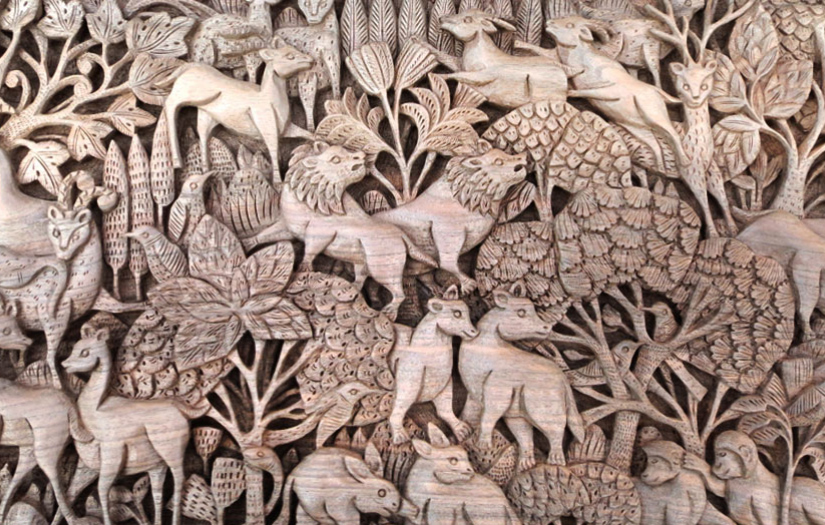
A carpet of dried maple leaves and the sound of two pairs of tiny feet squirreling around, crushing them beneath, abrupt spurs of giggle merging with the sound of the stream flowing nearby… a pair of deep blue eyes shining like sapphires from behind the coarse textured walnut trunk; kind and mischievous at the same time, inviting but reserved, playful but timid.
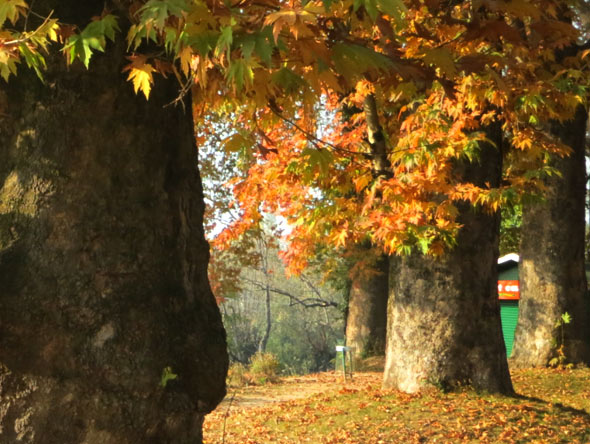
Walnut wood carving
The other with the flavor of cinnamon in her’s, pretentiously naive and lost, circling the girth of the trunk with her tiny feet, silent as a preying cat and a mellow gold sun shining upon them all. Years went by unnoticed, lending a ring to the trunk of the huge walnut tree season after season; the playing never stopped. Until one day, when Sheen and Jameil suddenly grew old. It was time for them to part and the old tree was left alone.
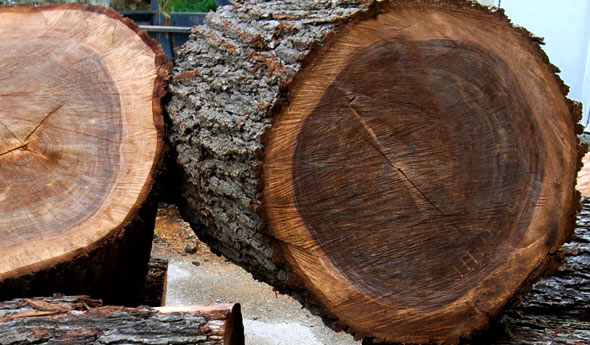
The raw material used for the fine woodcarving of Kashmir is obtained from walnut tree locally known as ‘Doon Kul’ and is cut only once it matures to an age of 300 years. This wood is considered very special for a number of qualities; it is available only in Kashmir in India, the wood is hard and durable, it’s close grain and even texture facilitates fine and detailed carving work. Pahalgam and Sonmarg in Kashmir are homes to some of the oldest groves.
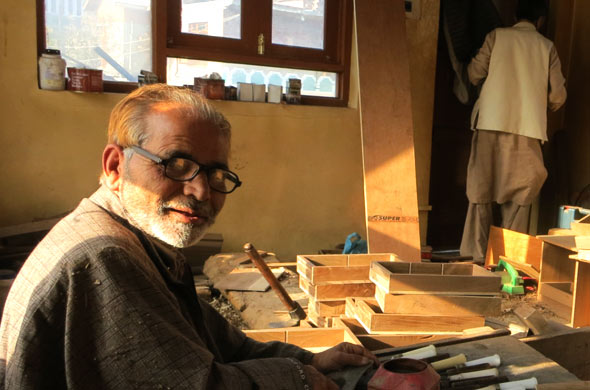
Wood used for carving can be from the root or trunk of the tree. Master artisan Khalid Mohd. Kalwal speaks through his 55 yrs of experience “Nowadays branches of walnut tree are also being used due to shortage of raw material. The wood derived from the root is almost black with the grain more pronounced than the wood from the trunk, which is lighter in color. Branches have the lightest color with no noticeable grain. It is actually the dark part of wood, which is best for carving as it is strong. The value of the wood differs with the wood from the root being most expensive.”
Walnut trees are of four varieties namely; ‘Wantu’ or ‘Vont Dun’ (fruit has hard shell), ‘Dunu’ and ‘Kakazi’ or ‘Burzol’ (best fruit with lightest shell), which are cultivated while the ‘Khanak’ is found in the wild. These can be cut only once they mature to give fruits.
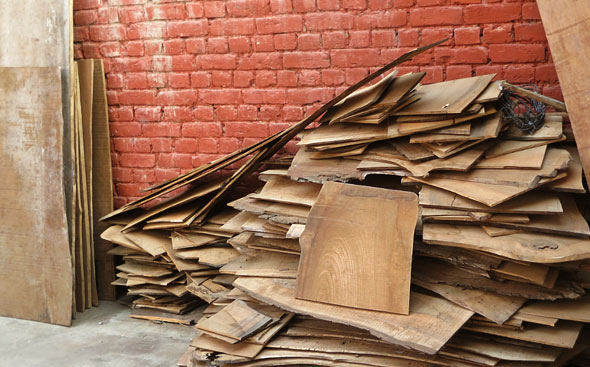
The wooden planks so obtained are then numbered (dated) and piled one upon the other. The process is always carried out in shade. The gaps in between the different layers of the planks allow the passage of air, which helps in the seasoning process. Seasoning goes on for 1 to 4 yrs.
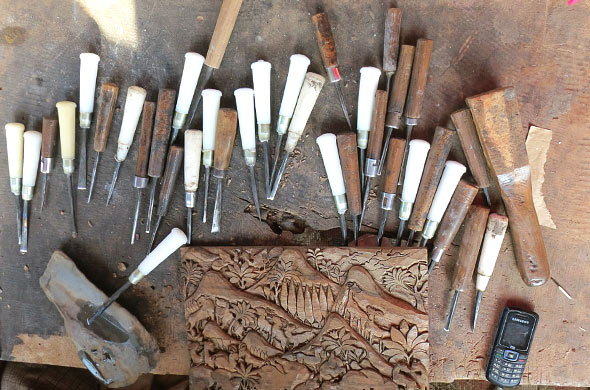
The seasoned wood is then sent to the Carpenter who makes the required object from it, which may be a box, a piece of furniture like table, chair, dresser, bed, book rack, dining table, panel, door or a bowl or lamp. The traditional tools being employed are:- chisels of different type (wathlavun), planer (randha), measuring tape (phet gaz), L-angle for obtaining parallel and perpendicular lines (khari hat) and Wooden scale (khat chhal).
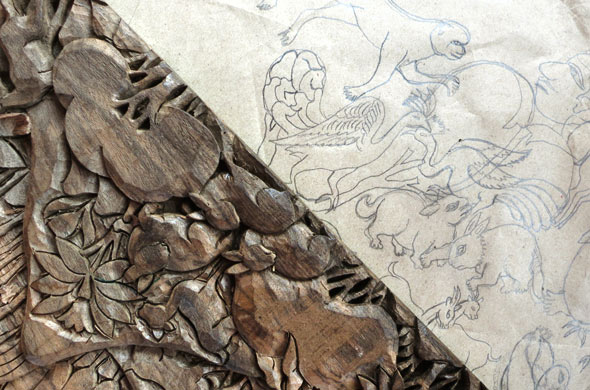
Dismantled pieces are then brought for carving. The various steps include: Inscribing (laakhun): Motifs are drawn on wood with the help of a pencil. Masters of the craft usually start skipping the first step, their chisel becomes their pencil and they carve from their memory.
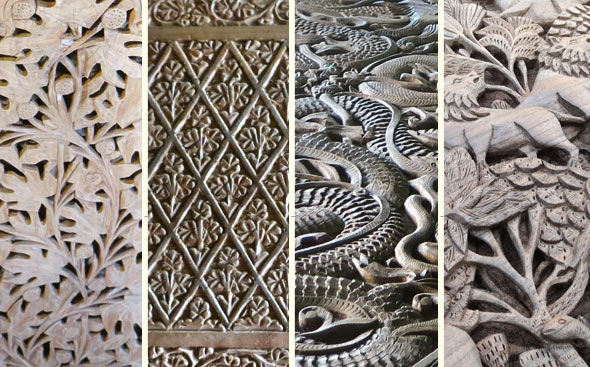
Carving: There are five main styles of woodcarving: Undercut (Khokerdar): This type comprises multi-layers that can exceed upto seven. The overall effect tends towards three-dimensional depiction of various motifs or scenes for eg. a jungle with layers of flora, intertwined, rabbits hopping from bushes, birds flying et al. Open or Lattice work (Jalidahr): This type of carving works in screens and employs beautiful see-through Jali work. Chinar leaf motifs and Mogul jali patterns are an example of the same. Deep carving (Vaboraveth): This work is also known as raised work and the designs in this form of carving comprise dragons or lotus motifs. The depth of carved part can go upto 5 inches. Semi carving (Padri): Usually this type of work comprises thin panels along the rim of the surface with a central motif. Shallow carving (Sadikaam): In this, the motifs or scenes are merely chased along the lines in pencil, to give them a little depth.
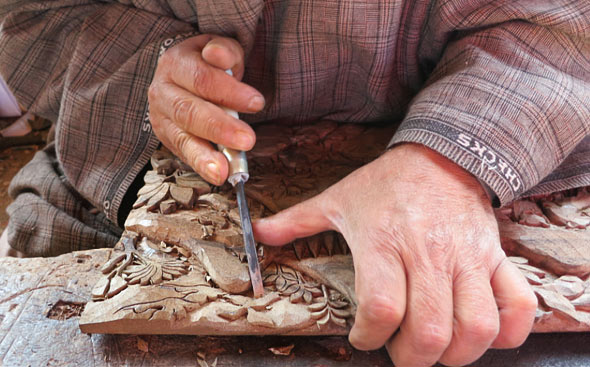
The four seasons of Kashmir, Paisley (kyam), shawl designs, flowers (posh kaar), dragon (lassi), and jungle scene are some of the cherished inspirations of the craftsmen. Individual carved pieces are then compiled using accurately made carpentry joineries; hinge joint, dove and tail joint are the most used ones. Walnut wood has an inherit sheen which surfaces on its own when polished with wax or lacquer.
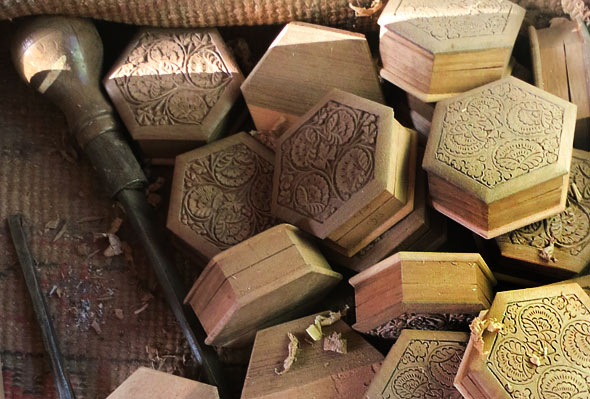
Walnut woodcarving is believed to have been introduced in Kashmir by Islamic missionary Sheikh Hamza Makhdoom during the reign of Zainul Abdideen in the 15th century. The king promoted the art to improve the valley’s economy. And the ever-blooming market for these master beauties kept bringing wealth and employment to the artisans until a few decades ago. Today with around 3000 skilled artisans alone in the city of Srinagar the craft is longing for patrons. Intolerance in solving differences has never done good to anyone and the artisans realize the setback that has been caused by the loss of their brothers from the Hindu community. An old man once said “what goes around comes around”.
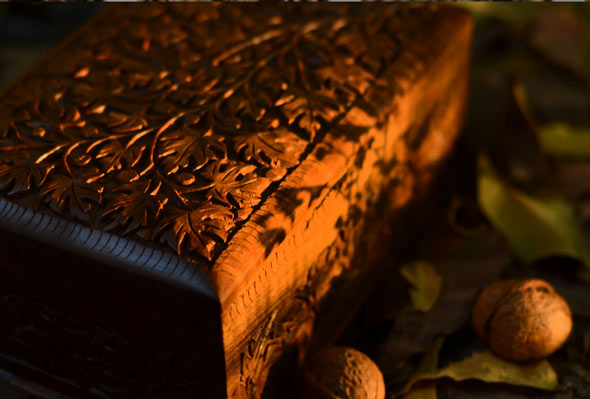
Decades later Jameil returned home. The big old tree wasn’t there. His father handed him a beautifully crafted box and told him that it had been made from the wood of the same tree he used to play around… now with this box in his hands he’s afraid that the hazy visions of a friend and the connection he has always been drawn to might be more than just a creation of his dreamer mind. Whether he can see her or not cannot be said but what he surely does at the moment is the same world of innocence, the big tree, the cinnamon flavor, the giggle, the hide and seek and the sneak peek, all with a snap of a button!
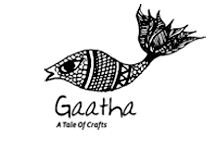


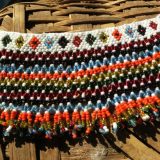
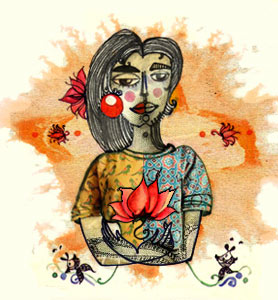
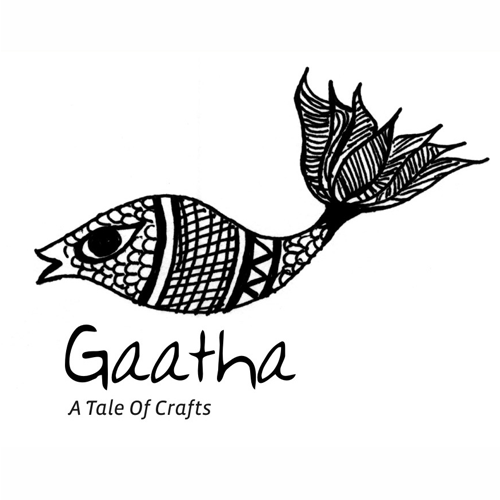


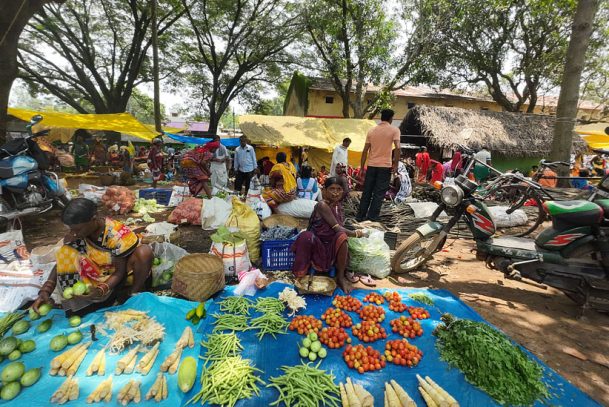
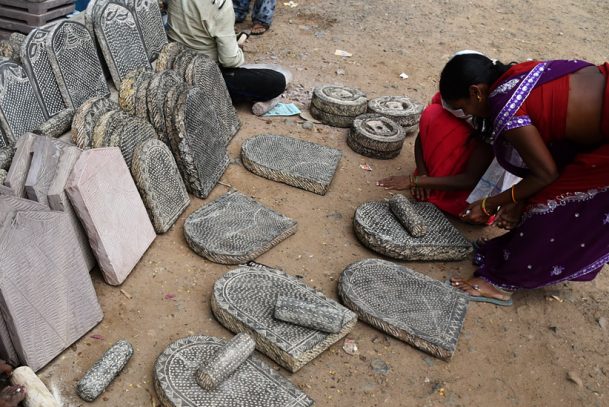

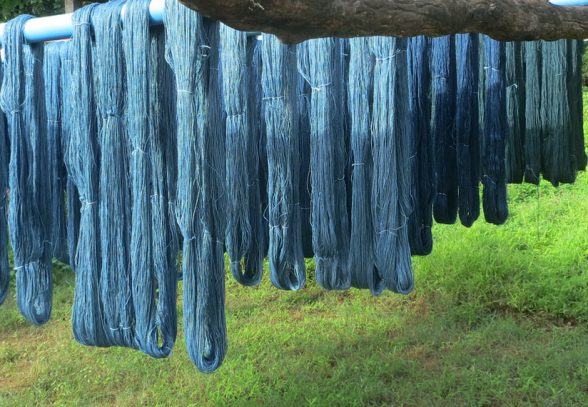
veera patel
where is it possible to buy some of this walnut carved work
pl inform
gaatha_home
please check online shop ~ http://shop.gaatha.com/index.php?route=product/category&path=25_244
Thanks
Michael Lin
Do you have his contact information by any chance. Thanks. We would like to invite him to our event. http://www.worldwoodday.org/
gaatha_home
please send us more information at ~ [email protected]. Thanks